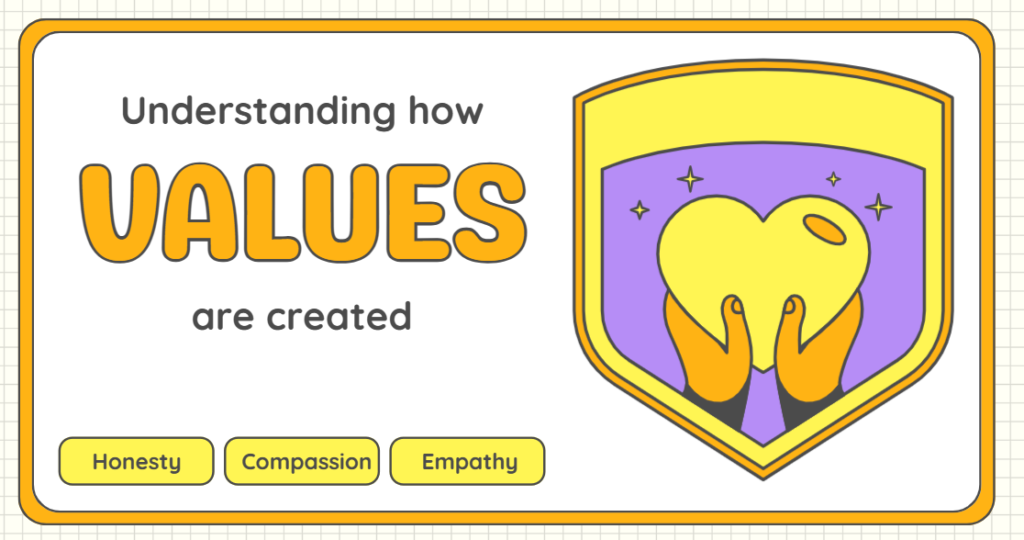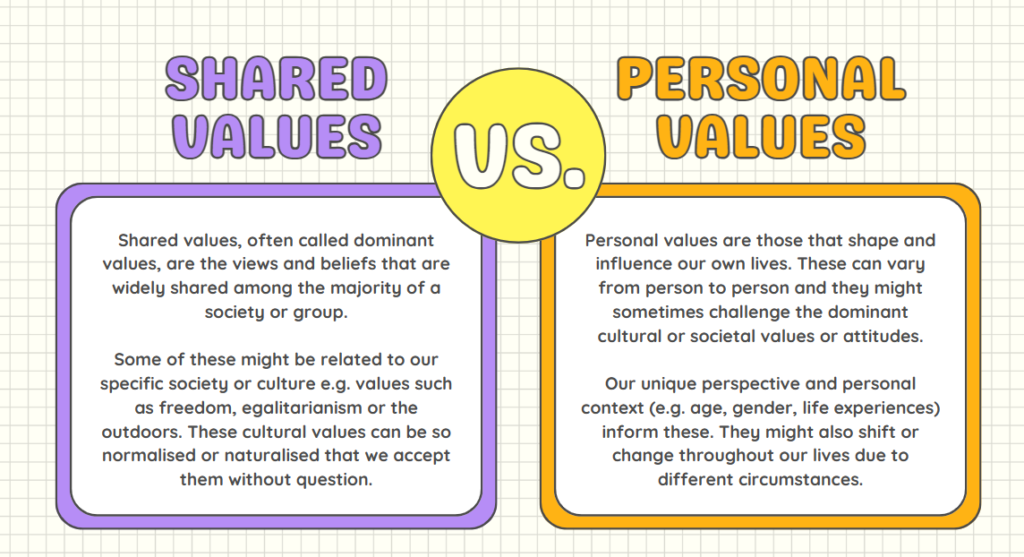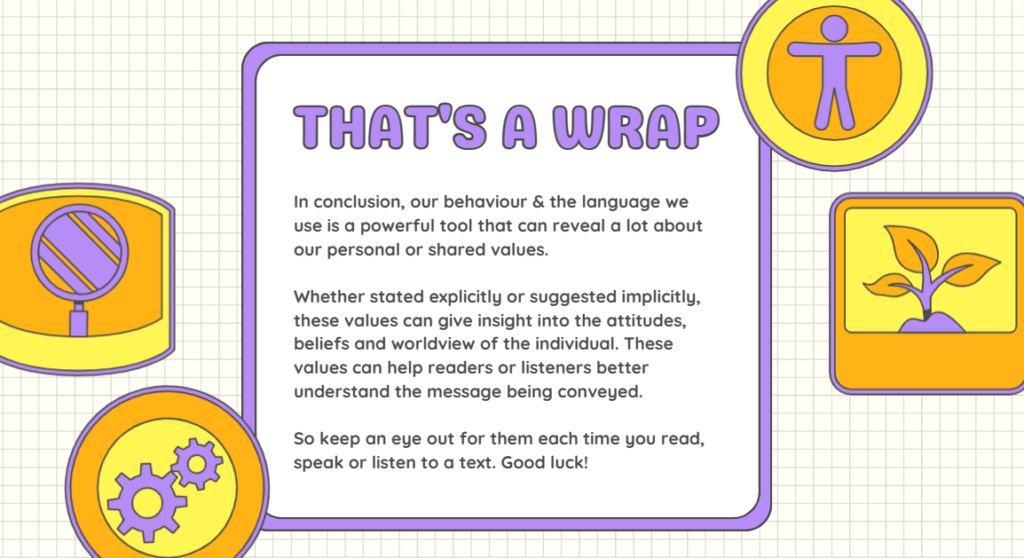

How Our Values Are Created?
As I reflect on the role of religion in shaping our values, I am drawn into a profound exploration of the intricate relationship between faith and morality. Having been raised in a household where religion played a central role in our lives, I have witnessed firsthand how the teachings and traditions of our faith have influenced the values we hold dear. In this narrative, I aim to delve deep into the mechanisms through which religion creates and reinforces values, drawing upon personal experiences, scholarly insights, and philosophical reflections.
Religion, in its essence, serves as a guiding force that provides individuals with a framework for understanding the world and their place within it. It offers answers to life’s existential questions, instills a sense of purpose and meaning, and provides moral guidelines for ethical living. Central to this moral framework are the values that shape our thoughts, actions, and interactions with others.


One of the primary ways in which religion creates values is through its sacred texts and teachings. These texts, often considered divinely inspired or revealed, serve as authoritative sources of moral guidance for believers. In the Hindu tradition, for example, the Bhagavad Gita presents a comprehensive guide to righteous living, emphasizing the importance of duty (dharma), selflessness, and devotion to God. Similarly, in Christianity, the Bible offers a moral code rooted in love, compassion, and forgiveness, as exemplified by the teachings of Jesus Christ.
Growing up, I remember my parents reading passages from our religious texts and discussing their relevance to our daily lives. These stories and teachings served as moral parables, imparting valuable lessons about honesty, integrity, humility, and other virtuous qualities. Through these narratives, I learned about the importance of empathy, kindness, and respect for others, values that continue to shape my worldview to this day.
In addition to sacred texts, religious rituals and practices also play a crucial role in reinforcing values within religious communities. These rituals serve as tangible expressions of faith, providing opportunities for believers to reaffirm their commitment to their religious principles and values. Whether through prayers, ceremonies, or acts of worship, individuals are reminded of the moral imperatives of their faith and encouraged to embody these values in their daily lives.
For example, in Islam, the five daily prayers (Salah) serve as a constant reminder of one’s devotion to God and the importance of humility and submission. Likewise, in Buddhism, the practice of mindfulness and meditation cultivates qualities such as compassion, patience, and equanimity, which are central to the Buddhist value system.
My own experiences with religious rituals have deepened my appreciation for the values they represent. Whether attending weekly services at the temple or participating in religious festivals and ceremonies, I have found solace and inspiration in the communal expression of faith and the shared commitment to moral principles. These rituals serve as anchors in the tumultuous seas of life, providing a sense of belonging and purpose that transcends individual concerns.
Beyond texts and rituals, religious communities themselves play a pivotal role in shaping values through socialization and collective identity. In close-knit religious communities, individuals are surrounded by like-minded peers who share their beliefs and values, providing a supportive environment for moral development and growth. Through social interactions, communal gatherings, and shared experiences, individuals internalize the values of their religious tradition and integrate them into their identities.
In my own community, I have witnessed the power of collective solidarity in reinforcing shared values and principles. Whether through volunteer initiatives, charitable work, or interfaith dialogues, members of our religious community come together to uphold the values of compassion, service, and social justice. These collective efforts not only strengthen the bonds of fellowship and brotherhood but also serve as a testament to the transformative potential of religious values in action.
Moreover, religious institutions such as churches, temples, mosques, and synagogues play a vital role in promoting values within society at large. Through educational programs, outreach initiatives, and social advocacy, these institutions seek to instill moral virtues and foster ethical behavior among their members and the broader community. Whether through preaching sermons on social justice issues, organizing charity drives for the needy, or advocating for legislative reforms, religious institutions serve as moral beacons that illuminate the path towards a more just and compassionate society.
In my own community, our temple serves as a hub of religious and social activities, offering a wide range of programs and services to meet the diverse needs of our members. From religious classes for children and youth to support groups for families in crisis, the temple serves as a catalyst for positive change and community development. Through its various initiatives, the temple not only reinforces religious values but also fosters a sense of civic responsibility and engagement among its members.
Furthermore, religion shapes values through its influence on cultural norms, societal attitudes, and ethical standards. In many societies, religious teachings and traditions serve as the bedrock of moral values and ethical principles, informing laws, customs, and social mores. Whether through prohibitions against theft, murder, and adultery or injunctions to care for the poor, the sick, and the marginalized, religious values permeate every aspect of human life and society.
However, it is essential to recognize that religion is not the sole source of values, and values can also be influenced by factors such as cultural heritage, family upbringing, education, and personal experiences. While religion undoubtedly plays a significant role in shaping moral values, individuals may interpret and prioritize these values differently based on their unique backgrounds and circumstances.
For example, consider the concept of family values. While many religions emphasize the importance of family cohesion, respect for elders, and care for one’s relatives, the specific manifestations of these values may vary across different cultural contexts. In some cultures, arranged marriages and multigenerational households may be seen as integral to preserving family harmony and tradition, while in others, individual autonomy and nuclear family structures may be prioritized.
Similarly, the value of honesty may be universally revered across religious traditions, but the cultural norms surrounding honesty and integrity may differ significantly from one society to another. In some cultures, honesty may be equated with transparency and accountability in public life, while in others, it may be understood more in terms of personal integrity and moral uprightness.
Furthermore, individuals may draw upon multiple sources of inspiration and guidance in formulating their values, blending religious teachings with secular ethics, philosophical principles, and humanistic ideals. For example, a person may derive their commitment to social justice from both their religious faith and their belief in the inherent dignity and worth of every human being.
In my own journey, I have grappled with the complex interplay between religious values and secular ethics, seeking to reconcile the teachings of my faith with the realities of the modern world. While my religious upbringing has instilled in me a deep reverence for compassion, kindness, and service to others, I have also drawn inspiration from secular sources such as literature, philosophy, and social activism.
Moreover, as I navigate the complexities of contemporary society, I have come to appreciate the importance of critical reflection and moral discernment in evaluating the values espoused by religion and culture. While I deeply respect the traditions and teachings of my faith, I recognize that blind adherence to religious dogma can sometimes lead to intolerance, divisiveness, and moral absolutism.
Instead, I strive to approach religious values with an open mind and a compassionate heart, recognizing the inherent dignity and worth of all individuals, regardless of their religious beliefs or cultural background. In doing so, I seek to embody the universal principles of love, empathy, and justice that lie at the core of all religious and ethical traditions.
In conclusion, religion plays a profound role in shaping values by providing individuals with moral guidance, communal support, and a sense of purpose and meaning. Through sacred texts, rituals, communal practices, and social institutions, religion offers a framework for ethical living and moral development, influencing individuals’ beliefs, attitudes, and behaviors.

However, values are not static or monolithic but are shaped by a complex interplay of religious, cultural, and personal factors. As individuals, we have the agency to critically engage with religious teachings, question cultural norms, and reflect on our own experiences in formulating our values. By embracing diversity, fostering dialogue, and cultivating compassion, we can work towards creating a more inclusive, equitable, and morally just society, grounded in the timeless wisdom of our religious and ethical traditions.
